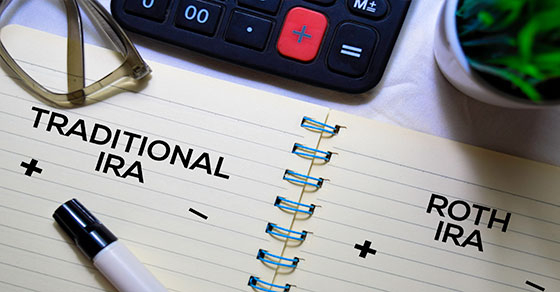
Are you a charitably minded individual who is also taking distributions from a traditional IRA? You may want to consider the tax advantages of making a cash donation to an IRS-approved charity out of your IRA.

Are you a charitably minded individual who is also taking distributions from a traditional IRA? You may want to consider the tax advantages of making a cash donation to an IRS-approved charity out of your IRA.

The tax filing deadline for 2021 tax returns is April 18 this year. After your 2021 tax return has been successfully filed with the IRS, there may still be some issues to bear in mind. Here are three considerations:

Despite the robust job market, there are still some people losing their jobs. If you’re laid off or terminated from employment, taxes are probably the last thing on your mind. However, there are tax implications due to your changed personal and professional circumstances. Depending on your situation, the tax aspects can be complex and require you to make decisions that may affect your tax picture this year and for years to come.

If you’re getting ready to file your 2021 tax return, and your tax bill is more than you’d like, there might still be a way to lower it. If you’re eligible, you can make a deductible contribution to a traditional IRA right up until the April 18, 2022, filing date and benefit from the tax savings on your 2021 return.

Traditional IRAs and Roth IRAs have been around for decades and the rules surrounding them have changed many times. What hasn’t changed is that they can help you save for retirement on a tax-favored basis. Here’s an overview.

While Congress didn’t pass the Build Back Better Act in 2021, there are still tax changes that may affect your tax situation for this year. That’s because some tax figures are adjusted annually for inflation.

Are you considering a move to another state when you retire? Perhaps you want to relocate to an area where your loved ones live or where the weather is more pleasant. But while you’re thinking about how many square feet you’ll need in a retirement home, don’t forget to factor in state and local taxes. Establishing residency for state tax purposes may be more complicated than it initially appears to be.

Employers offer 401(k) plans for many reasons, including to attract and retain talent. These plans help an employee accumulate a retirement nest egg on a tax-advantaged basis. If you’re thinking about participating in a plan at work, here are some of the features.

Married couples may not be able to save as much as they need for retirement when one spouse doesn’t work outside the home — perhaps so that spouse can take care of children or elderly parents. In general, an IRA contribution is allowed only if a taxpayer earns compensation. However, there’s an exception involving a “spousal” IRA. It allows contributions to be made for nonworking spouses.
For 2021, the amount that an eligible married couple can contribute to an IRA for a nonworking spouse is $6,000, which is the same limit that applies for the working spouse.
